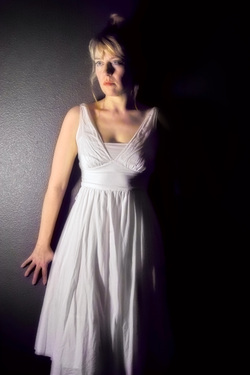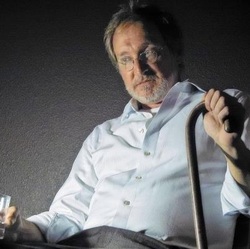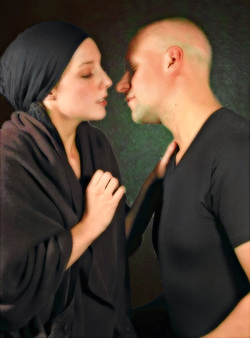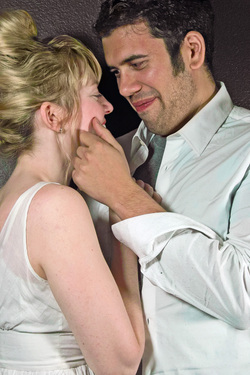
Well, it is always fun to see a script you’ve been laboring over for two years come alive in the competent hands of some fine actors, director,
designers, and stage management crew. This play marks a significant change for me as a dramatist. This is by far my most mature work. All the characters are three dimensional. They have their attractive attributes and their flaws. Plus, I’m having fun playing with time, shifting back and forth between the present and the 1960’s and exploring the various social and cultural issues that arise from those juxtapositions.

At some point, I read an article in the newspaper about how a body was discovered by some workers renovating an old building in Los Angeles. That was the initial seed for the play. How did this person end up there? Why? From there it evolved over a series of workshops with the Seattle Playwrights’ Collective. The characters grew, the plot became more complex, and lots of bad ideas were left on the cutting room floor. This shedding allowed the play to really come into focus, and I’m discovering while sitting in on rehearsals that the play is really more focused in what it’s trying to say than I ever thought.

I actually hate the title of the play and have struggled to find a better name than “The Woman in the Wall”for months, but I can’t seem to find anything better. It does encapsulate the main subject matter of the story, and it does create a sense of mystery. Who is this woman in the wall? What the hell is this play about? Also, the title speaks to the central metaphor of the play – walls. The script is not just about a literal wall, but the plethora of walls that surround us and imprison us – cultural, economic, gender, race, age, and so forth. The play certainly doesn’t try to offer any answers about these issues. I personally don’t think art is good at providing definitive answers. What I do think it does is highlight the issues so that the audience can pose questions and explore the various walls they encounter in their own lives in some way.

I’m not an autobiographical playwright. I’m not trying to solve my own emotional and psychological issues through my writing. However, the subconscious has a funny way of exerting itself during the creative process. It didn’t occur to me how much I was drawing on my own experiences while writing
the play until we started rehearsals and I began helping to prepare marketing and public relations materials. Perhaps that provided a distance so I could see things more clearly. The central character Stephanie is a journalist suffering from a brain tumor, and one of my best friends in college, Paul Chavez, was a journalism major who succumbed to a brain tumor before he was thirty. There’s also a scene where Stephanie has to let her former boyfriend Jake go to be with somebody else because she knows her time is short. This is certainly drawn from how my late acting teacher Taft Miller helped to connect his longtime partner Joyce Lower with one of his best friends John before he passed. It’s a selfless act of love because you want the person you are leaving behind to be happy. And then there is the issue of wrestling with the loss of a child. When my wife and I first got pregnant, we lost twin children – Sam and Isaac – at childbirth. Some of the conversations we have had are certainly reflected in the dialogue between Stephanie and Jake. So, there are a lot of secrets about myself in this play, but I wasn’t aware of it until very late in the process.

Although the play does go to some unquestionably dark places, I think in the end it is life affirming. We are all flawed individuals. Terrible things happen to each of us. But in the end I think the play will encourage audiences to really appreciate and cherish their own lives and the lives of those around them.
 RSS Feed
RSS Feed